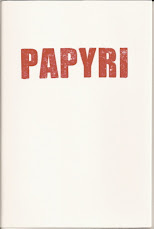1999:
I’d give up my sight just to see you
I’d beg I would borrow and steal
I’d cut off my hands just to touch you
I’d tear out my heart so you’d know how I feel
– Amanda Marshall, “If I Didn’t Have You”
(Tuesday’s Child)
Something in these absurd song-lyrics approaches sublimity. Imagine being pawed at by Amanda’s bloody stumps, as she stares blindly in your approximate direction! Imagine sending her out on the street to beg for you, a second Lavinia (you know … Titus Andronicus), Philomel with a tongue! I like it.
It’s not that they fulfil some obscure fetish of mine. It’s the excess of the whole thing that appeals to me. I mean, suffering grotesquely to win more affection from the beloved object is a cliché older than Catullus (older than The Epic of Gilgamesh, probably), but the sheer circumstantial detail of Amanda’s version takes it over into the world of the freak-show. Horror-show, very horror-show, as Anthony Burgess’s droogs would say.
Don’t get me wrong. I don’t think it’s good because it’s camp. I don’t think it’s good because it’s well-written (“If it were better-written, it would not be so good,” as someone once remarked of the witches’ song in Macbeth[1]). I don’t think it’s good because it’s honest (though it might well be). I think it’s good because it surprises you into inhabiting a dead metaphor for a moment. The violence implicit in it speaks to the violence inside us all (“He kills without rhyme or reason …”)
Hannibal Lecter ends up cutting off a hand for his petite amie Clarice in the Ridley Scott movie Hannibal (sorry if I’ve just ruined the plot for anyone). That’s just silly. I probably would have started laughing at some stage if I’d been Amanda Marshall, trying to sing those words (I’d cut off my hands just to manage a feel” – something like that). I do admire the courage of her absurdity, though. It’s the same courage which emboldens Kathy Acker to repeat the same paragraph over and over again, without even the leaven of obscene expletives.
“Well-written prose” – sounds like an oath, doesn’t it?
“Well -made play.”
Stick Terence Rattigan[2]’s head on a pole!
“Kill the pig, drink its blood!”
Simon’s sharpening a stake at both ends …[3]1. "Old actors believe the witches' song in Macbeth to possess the uncanny power of casting evil spells. Many actors, especially in England, avoid Matthew Locke's music for the play, quoting numerous stories of ill-fates befallen to those who have played, sung, or hummed it within the theatre walls." The Lytton Players (Stevenage).
2. Sir Terrence Rattigan (1911-1977): author of French without Tears (1936), The Winslow Boy (1946), The Browning Version (1948) and a host of other stunningly successful and well-made plays.
3. William Golding, Lord of the Flies (1954).
Poems, Imitations & Translations
Sunday
Case Studies (5):
Subscribe to:
Post Comments (Atom)








.jpg)
No comments:
Post a Comment